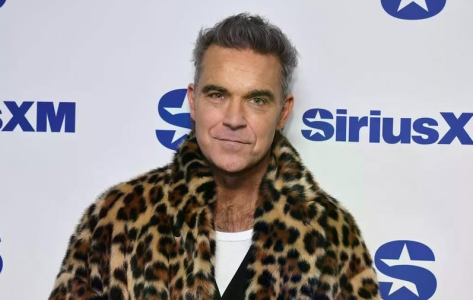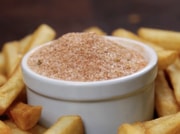'17th-century illness makes comeback; recent diagnosis could affect you
By
- Replies 18
When we think of scurvy, images of swashbuckling pirates and long sea voyages might spring to mind, not something that would affect us in the 21st century.
Yet, the recent news of an English singer and songwriter's diagnosis with this '17th-century disease' has brought scurvy back into the spotlight, reminding us that it's not just a historical curiosity.
Robbie Williams, the 51-year-old pop icon, opened up to The Mirror about his health scare, which came after a period of significant weight loss.
He attributed the weight loss to medication that he compared to the weight-loss drug Ozempic, but it was the lack of nutrients in his diet that led to his scurvy diagnosis.
'I’d stopped eating, and I wasn’t getting nutrients,' he said, detailing his struggle with sadness, anxiety, and depression.
The revelation that someone as high-profile as Williams could suffer from scurvy is a stark reminder that nutritional deficiencies can affect anyone, regardless of their status or wealth.
A severe lack of vitamin C, a nutrient essential for the growth, repair, and development of all body tissues, causes scurvy.
Its absence can lead to a host of symptoms, including fatigue, weakness, joint and muscle pain, irritability, depression, and easily bruised skin.
In severe cases, it can even cause teeth to fall out due to swollen, bleeding gums.
While scurvy is indeed rare in modern times, it's not extinct. The disease was a major killer of sailors between the 16th and 18th centuries, but today's access to a variety of foods and nutritional knowledge has made it much less common.
However, certain groups are still at risk, particularly those who do not consume fresh fruits and vegetables, those with limited food intake, smokers, and individuals with long-term dependencies on drugs or alcohol.
A study published in the Oxford Academic journal highlighted a concerning trend among the UK's low-income and materially deprived population.
It found that a significant percentage of this group had vitamin C levels indicative of deficiency or depletion.
This suggests that despite the availability of vitamin C-rich foods, there are still pockets of the population who are not getting enough of this crucial nutrient.
To prevent scurvy and maintain overall health, including vitamin C-rich foods in your diet is important. These include:
The NHS recommends that adults aged 19-64 consume around 40mg of vitamin C daily, while children consume about 15mg daily.
However, it's important not to overdo it, as excessive vitamin C intake can lead to gastrointestinal issues such as diarrhea, stomach cramps, and flatulence.
Robbie Williams's experience is a wake-up call for us to pay closer attention to our diets and ensure we get the necessary nutrients.
It's a reminder that even in our modern world, with all its advancements, we're not immune to the ailments of the past.
As we continue to explore health, food, and nutrition, let's take this opportunity to reflect on our eating habits.
Are we including enough vitamin C in our diets? Could we be at risk of a deficiency without even realising it? It's never too late to change our diet to support our health and well-being.
It wasn't long ago when a similar case, common among seafarers, was diagnosed in a middle-aged man in Western Australia.
Doctors believe the resurgence of this historic disease may be tied to current cost-of-living pressures, causing people to overlook proper nutrition due to financial strain. You can read more about it here.
Credit: YouTube

Have you ever been surprised by a nutritional deficiency? How do you ensure you're getting enough vitamins and minerals in your diet? Share your experiences and tips in the comments below.
Yet, the recent news of an English singer and songwriter's diagnosis with this '17th-century disease' has brought scurvy back into the spotlight, reminding us that it's not just a historical curiosity.
Robbie Williams, the 51-year-old pop icon, opened up to The Mirror about his health scare, which came after a period of significant weight loss.
He attributed the weight loss to medication that he compared to the weight-loss drug Ozempic, but it was the lack of nutrients in his diet that led to his scurvy diagnosis.
'I’d stopped eating, and I wasn’t getting nutrients,' he said, detailing his struggle with sadness, anxiety, and depression.
The revelation that someone as high-profile as Williams could suffer from scurvy is a stark reminder that nutritional deficiencies can affect anyone, regardless of their status or wealth.
A severe lack of vitamin C, a nutrient essential for the growth, repair, and development of all body tissues, causes scurvy.
Its absence can lead to a host of symptoms, including fatigue, weakness, joint and muscle pain, irritability, depression, and easily bruised skin.
In severe cases, it can even cause teeth to fall out due to swollen, bleeding gums.
While scurvy is indeed rare in modern times, it's not extinct. The disease was a major killer of sailors between the 16th and 18th centuries, but today's access to a variety of foods and nutritional knowledge has made it much less common.
However, certain groups are still at risk, particularly those who do not consume fresh fruits and vegetables, those with limited food intake, smokers, and individuals with long-term dependencies on drugs or alcohol.
A study published in the Oxford Academic journal highlighted a concerning trend among the UK's low-income and materially deprived population.
It found that a significant percentage of this group had vitamin C levels indicative of deficiency or depletion.
This suggests that despite the availability of vitamin C-rich foods, there are still pockets of the population who are not getting enough of this crucial nutrient.
To prevent scurvy and maintain overall health, including vitamin C-rich foods in your diet is important. These include:
- Citrus fruits like oranges, grapefruits, lemons, and limes
- Other fruits, such as strawberries and blackcurrants
- Vegetables like bell peppers, broccoli, and Brussels sprouts
- Potatoes
The NHS recommends that adults aged 19-64 consume around 40mg of vitamin C daily, while children consume about 15mg daily.
However, it's important not to overdo it, as excessive vitamin C intake can lead to gastrointestinal issues such as diarrhea, stomach cramps, and flatulence.
Robbie Williams's experience is a wake-up call for us to pay closer attention to our diets and ensure we get the necessary nutrients.
It's a reminder that even in our modern world, with all its advancements, we're not immune to the ailments of the past.
As we continue to explore health, food, and nutrition, let's take this opportunity to reflect on our eating habits.
Are we including enough vitamin C in our diets? Could we be at risk of a deficiency without even realising it? It's never too late to change our diet to support our health and well-being.
It wasn't long ago when a similar case, common among seafarers, was diagnosed in a middle-aged man in Western Australia.
Doctors believe the resurgence of this historic disease may be tied to current cost-of-living pressures, causing people to overlook proper nutrition due to financial strain. You can read more about it here.
Credit: YouTube
Key Takeaways
- Robbie Williams was diagnosed with scurvy after significantly reducing his vitamin C intake due to dietary changes.
- The disease, historically known to affect sailors due to a lack of fresh produce, is rare today but can still occur with poor nutrition.
- Symptoms of scurvy include fatigue, joint and muscle pain, mood changes, and easy bruising, with severe cases leading to dental issues.
- Although scurvy is uncommon in modern times due to the availability of vitamin-rich foods, it's been suggested that vitamin C deficiency may be more common than expected, especially in lower-income populations.








